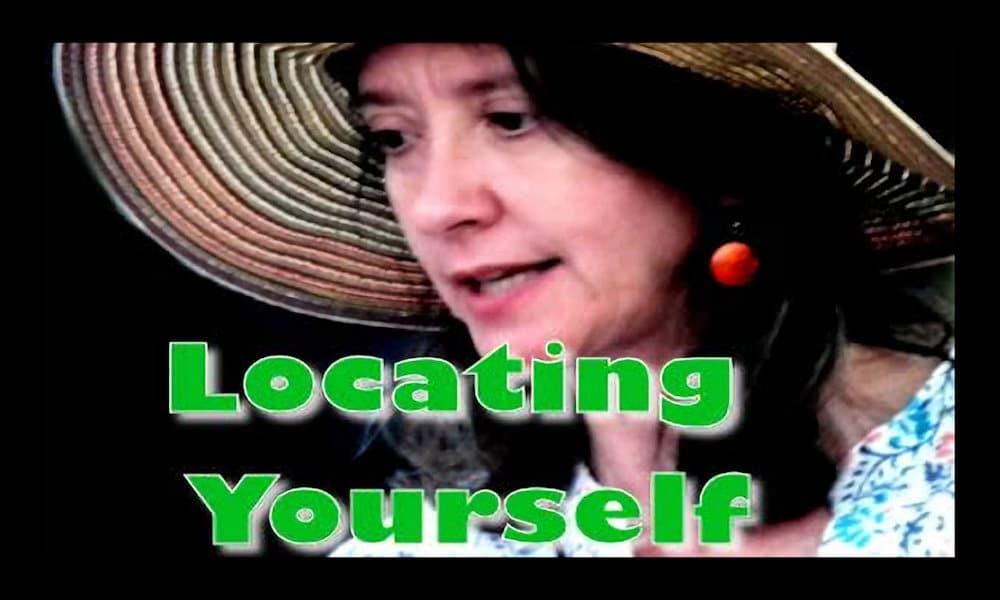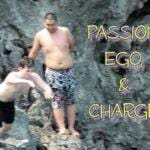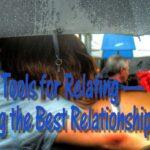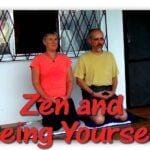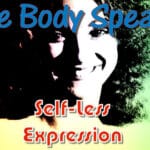Locating Yourself — most define themselves using lists. You just might be, only, what you enact.
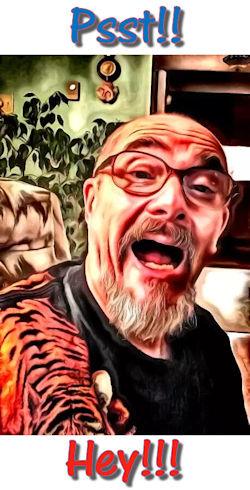
Psst!! Hey!!!
** Want more great writing designed to help YOU to shift your behaviour?
** Want to learn how to find, build or deepen your principal relationship?
** Want to know more about Zen living and being?
Check out Wayne’s books! (amazon link)
Or, check them out right on our site.
Let’s look at the ways we categorize ourselves — and propose an alternative.
When asked about Locating Yourself — asked the question “Who are you?” most people rhyme off a list.
They start with where they belong, and give you their place within that universe. For example, they’ll “locate” where they fit as a member of:
- a family structure: father, daughter, husband, etc., or
- a work environment: boss, self-employed, research scientist, etc., or
- a religion: Buddhist, Christian, agnostic, atheist, (not believing in god is still a belief) etc., or
- a political party: Liberal, NDP, Democrat, etc., or
- a culture: social rules, dress codes, ways of communicating, etc.
See if you can come up with more.
People “locate” within their gender.
Male, female, transgendered, and any and all other variations — and this, of course, comes with additional baggage, depending on cultural and religious factors.
- So, the behavioural expectations of a woman in North America is different than a woman in Afghanistan.
- Expectations concerning a man is different in South America than in Japan.
The same structural forces impact sexual orientation.
- Being gay in Toronto is different than being gay in Uganda, for example.
Speaking of gender issues, there’s also gender excuses:
- “I’m snarly because of PMS” or
- “I’m a man, and men don’t have feelings.”
People locate according to what they know. This is especially true in the West.
Because of my particular “bent,” I’m pretty interested in Zen and beginner’s mind. Many of my clients come to me because of it. However, some only want to have me agree that their understanding is perfect, despite not practicing what they believe. A little knowledge is a dangerous thing.
This is something I call ego identification.
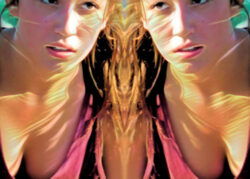
The ego has a lot invested in being declared both “right” and “enlightened.” It’s all crap, and the calm, centered part of us knows it.
We are also aware that, with the next screw up, we’ll be all over ourselves, but that doesn’t keep our egos from trying to sell this perspective.
People locate by their attractiveness, appearance, sex appeal, and who their friends are.
- One of my clients thought of herself as “one of the kids in University,” despite being a decade plus older.
- Another endlessly described how “everyone” thinks she’s “hot, sexy, and the smartest person in the room.” Hint: she wasn’t.
- Another identifies as a conservative Christian, but has sex with anyone who asks.
It’s silly and superficial, but many “live here” because of the prevalence of such markers in the media, in advertising, and in western literature.
Now, all of these ways of locating yourself (except for the last,) are valid notions of who I am.
I, for example, can’t escape being a son, and now an orphan. I daily choose to be a husband. I’m retired now, and my profession was psychotherapy, and I’m also an artist. My academic background consists of a B.A. and 2 Masters degrees. I have a 1st degree black belt (as does Dar) in Ninjitsu, and am qualified to teach a Tai Chi form.
I could go on and on, listing my likes and dislikes, my backpacking trips, books written, courses taken. I could point this blog, The Pathless Path, as a compendium of what and how I think.
And were you to put all of this together, you would still only have a caricature of me.
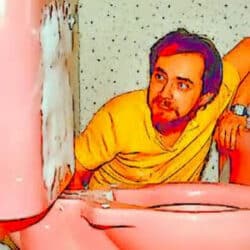
Everyone who knows me, either through my writings, or personally, has developed a set of beliefs about me — an internal picture of me that you think is “Wayne.” It, however, is not . But that’s a topic for another day.
The truth is that who I actually am is only shown in the way I choose to act
Locating yourself, and your internal beliefs are one thing, and not very reliable. Knowing, for instance, that I am a son tells you nothing about how I that relationship with my parents. My “son-ness” is in the action, not the description.
Example 1: Two of my favourite people are got married. Prior to that, they were in for a talk, to learn a bit more about communicating and being in relationship. I gave them a copy of The. Best. Relationship. Ever. as an engagement gift.
They talked about how they sometimes get off track in their relating, and thought it would be good to stop what wasn’t working and do what does.
The day after the session, I got 2 e‑mails:
- The session was super helpful. I feel like [emphasis mine, in all cases] our relating was really clear this weekend. We even played your “microdot” game at the pub on Friday night. I’m excited to read the book.
- actually i didn’t feel like our relating was clear. I thought it was. ? i felt warm and close to [my partner], and my eyes felt wide open and my mind felt open.
If you’ve read my books, the second e‑mail was a great move at correcting language according to the communication model we use. They’re doing things differently… and things are shifting.
Example 2: some years back, I was in a funk. I’d had a major depression in my past, and learned to dissipate a true depression quickly. (See my booklet, The Watcher.) This funk was a “low-grade unhappiness.” I decided to “be” with the funk, and see what lessons I could learn about myself.
That choice received a variety of responses.
- Darbella sat with me, and asked good questions, without trying to “fix” me or get me “out of it.” She was content to listen to me process my stuff.
- A doctor I know figured I needed Paxil.
- Some people tried to provide me with strategies to get out of the funk. They were confused when I said that I was fine being in the funk, and learning about this part of me.
- Clients had one of two reactions: 1) surprise that “the therapist” would be in a funk, or 2) relief that they weren’t the only ones.
The last reaction is the interesting one, for me.
My clients learned that something that is frowned upon by the culture could nonetheless be helpful. I heard, “You mean it’s OK to hurt sometimes? I feel low and unclear and unsure. My (partner) thinks it’s terrible and wants me to snap out of it. I’m afraid I’ll always be this way. But this is a part of me I need to explore.”
Exploration is what being aware and awake looks like
My point, long in coming, is that the answer to “who are you” is, “it depends.”
I am who I am . I am learning who I am by being open to experiencing all of me. I don’t limit my experience of me.
I work at not judging my desires and my emotions, nor do I judge how I choose to live out my life. I make clear choices and live with the consequences of my choices. I am not a helpless victim of my emotions, upbringing, culture or loci.
In this process of self-knowing, the “stuff” on the location lists — the ego stuff — the “Wayne” stuff — begins to fall away. Or at least, it has less of a pull.
Locating Myself — I am not merely what I know, who I sleep with, what I do for a living, or any of the other things that might cause me to puff up my chest or pull in my horns and scream, “Look at me! Aren’t I special!” I am who I enact. I am, in a sense, my experiences.
My “I‑am-ness” is limited only as I choose to limit myself. If I identify with lists, with what others think or what others want, my “I‑am-ness” becomes a small, tight box.
I am not a noun. I am a verb. The question, then, is this: how much of my “I‑am-ing” will I bring into consciousness, and how much will I choose to live, right here, right now?
‘Cause, hey, it’s not like you’re going to get another chance, eh?

